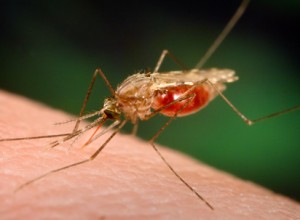Thirteen African countries receive awards for malaria control
 Thirteen African countries would be honoured, January 30, 2016, in Addis Ababa, for commitment and excellence in the fight against malaria, by the African Leaders Malaria Alliance – the coalition of African Heads of States working to eradicate the disease by 2030.
Thirteen African countries would be honoured, January 30, 2016, in Addis Ababa, for commitment and excellence in the fight against malaria, by the African Leaders Malaria Alliance – the coalition of African Heads of States working to eradicate the disease by 2030.
The awards will go to: Botswana, Cape Verde, Eritrea, Namibia, Rwanda, São Tomé and Príncipe, South Africa, and Swaziland for achieving the Millennium Development Goals (MDGs) target for malaria; Comoros, Guinea and Mali for being the Most Improved in Malaria Control, between 2011 and 2015; and Liberia, Rwanda and Senegal for good performance in malaria control between 2011 and 2015.
Africa has achieved historic progress in the fight against malaria over the past 15 years and since 2000, malaria mortality rates have fallen by 66 percent among all age groups and by 71 per cent among children under five.
Annual malaria deaths in Africa have also decreased from an estimated 764,000 in 2000 to 395,000 in 2015.
Approximately 663 million cases of malaria have been averted in sub-Saharan Africa over the last 14 years and according to the World Health Organization, reductions in malaria cases attributable to malaria control activities saved an estimated $900 million in case management costs from 2001 to 2014.
Prime Minister Hailemariam Dessalegn of Ethiopia, the current chair of ALMA, was quoted as saying that for the first time in history, a malaria-free Africa is in sight.
“The success in these 13 countries and elsewhere across the continent demonstrates that strong leadership is our most powerful weapon against this ancient and deadly disease.”
According to ALMA, commitments from donors such as the Global Fund to Fight AIDS, Tuberculosis and Malaria, the United States’ President’s Malaria Initiative, the United Kingdom’s Department for International Development, and France’s multilateral and bilateral contributions, have been instrumental.
Extensive use of effective and low-cost malaria control interventions, including long-lasting insecticide-treated nets and indoor residual spraying, have led to huge declines in incidence and death. Since 2000, more than 1 billion insecticide-treated nets have been distributed in sub-Saharan Africa.
However ALMA says there is still much work to do as there were an estimated 188 million cases of malaria in Africa.
About 90 percent of all global malaria cases and deaths are still said to occur in Africa and malaria still kills an African child every two minutes.
Lack of access to healthcare for anti-malarial healthcare for millions of Africans, and the growing threats of insecticide and drug resistance add to the urgency of the problem.
“In Africa, mosquito resistance to insecticides is increasing, and in Southeast Asia, resistance to Artemisinin, the most common drug used to treat malaria, is a significant threat”, ALMA says.
By Emmanuel Odonkor
